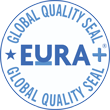Documentation Attestation: EER Talks Immigration Topics

At EER we often get asked a lot of questions about immigration, visa services and relocation (unsurprisingly). We know how daunting and confusing it can be to grasp the necessary elements required for becoming a resident in a new country, which is why we work so hard to make it as seamless and as stress-free as possible. With our extensive experience, we can provide assignees and companies with invaluable insights into how things work, the timelines to expect and what things they will need to have in place. We wanted to help expand our knowledge further by tackling some of the most common immigration topics and taking you through what is involved, answering common questions and providing some top tips on what to expect and what to do. This time we are taking a look at documentation attestation, what it is, how it works and what the process looks like.
What is Documentation Attestation?
Essentially documentation attestation is a way of providing a guarantee of reliability for countries welcoming in residents from abroad. When a document is attested by recognised bodies in your home country, its authenticity is certified, and its legitimacy is then accepted by the authorised government body or agency in the new country. Depending on the type of visa you are seeking, different documents and different forms of authentication may be required. You may need educational, professional, or personal certifications to obtain visas, secure sponsorship for dependents, open a bank account or start a business. Documentation attestation is not only helpful for the governing body to know your details are genuine, but it can also ensure that the individual or assignee is evaluated at the right level in terms of professional position, remuneration, entitlements and more.
Documentation Attestation in the UAE
The necessity for documentation attestation isn’t exclusive to the UAE by any means, but each country does have their own requirements for what items will need to be certified, by whom and how the process will work. As you would expect from dealing with different, and often geographically separate, government entities, the process can take some time. This means that you will need to factor potential delays in or plan ahead when it comes to scheduling the time it will take for your visa or business set up to get underway.
Typical Documents to need Attestation
The main purpose of documentation attestation is to ensure that your new country of residence (the UAE) has a reliable and credible assurances of the authenticity of your status, whether that be in educational qualifications, familial links, awards or professional certifications. The most common form of documents that will require attestation in the UAE are:
- Any Bachelor, Masters or Doctorate degree certificate (for employees at mid to senior levels and above)
- For those without a degree, your high school certification or relevant educational qualification will need to be certified
NB: it is worth noting that failure to certify your most relevant educational qualification could prevent you from being awarded certain levels of job title
- Relevant professional awards, qualifications, or diplomas, particularly if essential for your desired role i.e., in medicine, engineering etc.
- Marriage, birth, or adoption certificates will be needed for those with families and children, especially if they require sponsorship and divorce documentation will also be needed for divorced parents
The Process
In order to underline the authenticity of the documentation attestation process, there are several key steps that are generally required for all relevant documents. They also take place first in your home country (or country in which they were issued), and then in the UAE, which can help you plan ahead and avoid lengthy posting of documents. Here is the usual process you can expect:
In your home country:
Step 1: Get your documents certified by a registered solicitor or public notary (if a requirement in your home country)
Step 2: Have the certified documents legalized by the Ministry of Foreign Affairs. They will confirm its validity by attaching an official writ on the document (known as an Apostille in countries that are members of the Hague Apostille Convention)
Step 3: Have the document, with its dual certification, translated into Arabic
Step 4: Submit the document to the UAE Embassy for an Application of Attestation Stamps
In the UAE:
Step 5: Finally have your documents attested by the Ministry of Foreign Affairs in the UAE
Given how time-consuming documentation attestation can be, many individuals and companies opt to elicit assistance to streamline the process and navigate any particular nuances that may occur. At EER, we can take care of the entire documentation attestation process from start to finish, whether you need things handled in the UAE or your home country. We can talk you through any issues that might arise, recommend if any of your documentation needs to be updated or requires new authorisations and handle the transition of your papers through the relevant departments until they are returned to you.
If you would like to talk to one of our expert team about documentation attestation or visa and immigration services in Dubai or the UAE, please get in touch via info@eerme.com or call us on +971 4 421 1819.





